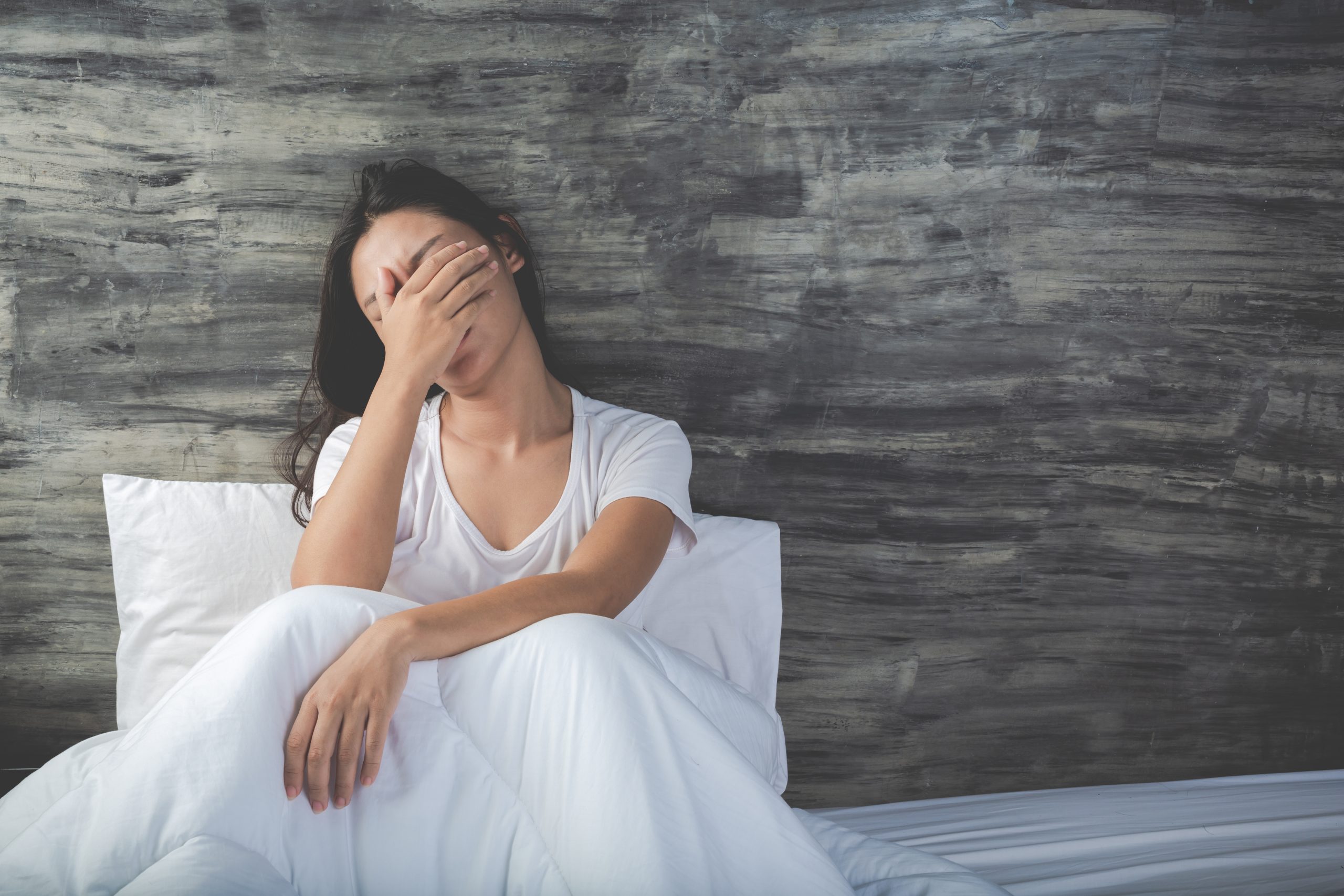Do you think you can get rid of anxiety or anxiety disorder? Does it stay forever? Can it be controlled? How can it be controlled? Are you bigger than your anxiety or anxiety bigger than you? How does it start? There are multiple questions and concepts you have read and heard about. Did reading about it fulfill your curiosity? There are a variety of emotions like anger, joy, sadness, anxiety, fear, etc. These emotions have an influence on the human body function like any other known factors eg. climatic change, age, food, exercises, etc. How does emotion transform into disorder? Have you realized your journey from emotional anxiety to anxiety disorder?

The journey from anxiety to anxiety disorder
Studies say that human beings have emotions like anger, joy, sadness, fear, anxiety, etc. What leads to their transition from anger to intermittent explosive disorder, sadness to depression, anxiety to generalized anxiety disorder?
There are various broad factors that affect our mind from childhood-
- Socioeconomic status
- Nutrition
- Parenting
- Schooling
- Friends
- Any occurrences like abuse, insults, reprimands, bad news, deception, domination, accidents, misbehavior of others, etc.
- Emotional disturbances like grief, scorn, humiliation, disappointment, indignation, cares and worries, etc.
- Mindful meditation, yoga, or exercise
- Environment, etc.
NOTE- These factors act in combination to determine the experience of a child/person to certain life occurrences and his reaction to the same.
How does anxiety transform into a disorder?
There are studies that say that if our mind practices certain things again and again then there is a development of that part of the brain. It is not just the case with your skills but also with emotions. If a person experiences anxiety, it gets stored in his memory center and our brain releases certain chemical neurotransmitters if that anxiety is triggered by the recollection of an event, brooding, or by triggers in the environment. If the emotion is for a long period of time and a person is in the state of that emotion it further affects the body function as our mind and body functions are connected. A person gets physical symptoms and also mental symptoms, but mental symptoms often go unmentioned. If the person is in a state of sadness for a long period of time he may land up in depression, if a person is in an environment that makes him anxious recurrently he may develop an anxiety disorder. This is how an emotion transforms into disorder if a person is sensitive to trigger and is affected by it repeatedly.
Let’s talk through an example- 1) A person experiences a financial loss in his business in the past, undergoing that he would worry about it or think about how things will happen in the future or how he will be able to manage things. As a person starts pondering over he does not even realize that his/her thoughts are affecting his sleep, mood, appetite, his cognitive abilities. Overthinking about the future has led to somatic symptoms like perspiration, palpitation, constriction in the chest.
2) A person gets anxious about speaking in front of people after an unpleasant experience, and when he again faces the same situation he recalls the past experience which was in his memory and gets anxious. This anxiety is expressed as there is the release of neurotransmitters that presents the symptoms of nervousness. The release of neurotransmitters leads to activation of the nervous system and the person demonstrates symptoms like palpitation, trembling, perspiration. If he keeps worrying or anticipating about it affects his physical body too.
Expression of Anxiety disorder in the patient
- The patient describes his physical symptoms like- palpitation, perspiration, trembling, in the abdomen, in the chest. These symptoms occur by activation of the nervous system. Flight and fright response gets aroused when a person’s brain recalls any unpleasant experience from the past.
- The patient talks about various issues he is anxious about like future, health, family, children, business.
- Before landing into a full-blown mental disorder person presents various alterations in his behavior, conversations, conducts, reactions that should be paid attention to.
- These anxiety disorder symptoms can co-occur with any other physical chronic complaints like diabetes mellitus, hypertension, rheumatic arthritis, sinusitis.
Attention-
IN MOST OF THE CASES PERSON DOES NOT REALIZE IF HE IS SUFFERING FROM ANY SUCH UNCONTROLLED EMOTION AND IF MENTAL SYMPTOMS ARE NOT PROMINENT IT IS NOT NOTICED BY PEOPLE AROUND HIM, IT IS IGNORED UNKNOWINGLY. If any uncontrolled emotion begins to show any physical distress or symptoms, then only physical complaints grab the attention for example- blood sugars are corrected, cholesterol levels are managed, uric acid is corrected, etc. Mental symptoms are ignored and often the person is stigmatized if he visits a professional in concern of mental or emotional disturbance.
Classification of Anxiety disorder according to DSM- V
- Generalized Anxiety Disorder
- Specific Phobia
- Social Phobia
- Obsessive-Compulsive Disorder
- Post Traumatic Stress Disorder
- Panic Disorder
According to the recent Diagnostic and Statistic Manual of Mental Disorder- V, anxiety disorders are classified as following. To diagnose a person with the above disorders he should have full-blown symptoms of the particular disorders.
Management-
Management in the case of an anxiety disorder requires along with treatment change in environmental factors. A person should be motivated by peers and family members. People should indulge in easy conversation with the closed once. Seek consultation with the professional and indulge in activities that will divert their mind. A person should himself make an effort in staying focussed on tasks whatever he likes to do.
Homeopathy treatment shows good results in psychiatric cases and if there is chronic physical disease along with mental disorder are also managed well. Dr. Samuel Hahnemann, in his book Organon of medicine, 6th edition laid down all the important principles in case of management of cases of chronic origin. He has classified mental diseases into 4 categories and also mentioned its management strategy. Patients when visiting the doctor are assessed accordingly.
- Case History – Chronic/Acute history
- Analysis
- Clinical Diagnosis
- Investigation, if required to confirm the diagnosis
- Follow up.
Homeopathy has good results in the case of mental disorders or in the initial stages of emotional disturbances leading to physical discomfort. Homeopathic medicines act on the mind and physical body. Homeopathy treatment does not show any medicinal side effects and dependency. Read more on why you should reach to homeopathy doctor?


Very informative post about Anxiety & Anxiety disorder. Thank you 🙂
My pleasure! Do share the article.
We can manage it but can’t completely eliminate it once ur affected by it?
It can be eliminated, with homeopathy medicine and counseling. Patients do not get symptoms of anxiety thereafter. Do share the article. Thank you!
keep it cool.
thinking of inner self heals people.
Thank you for your insight.